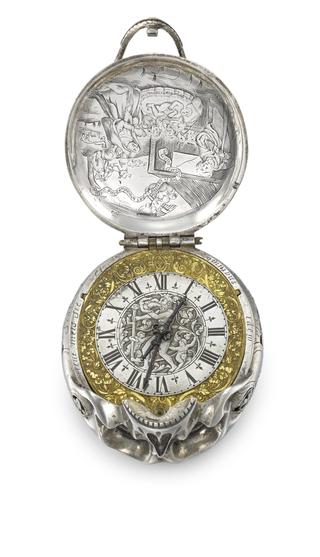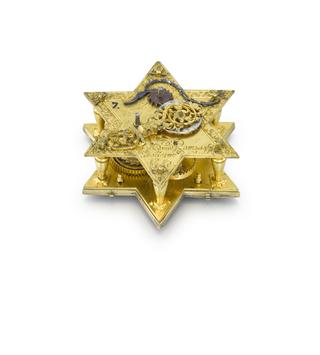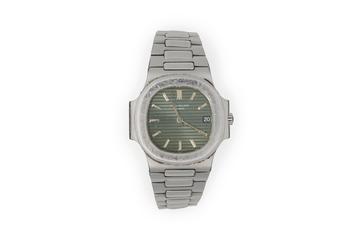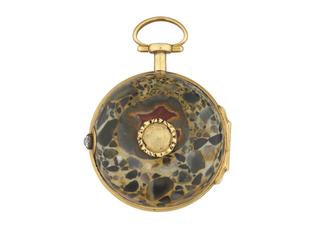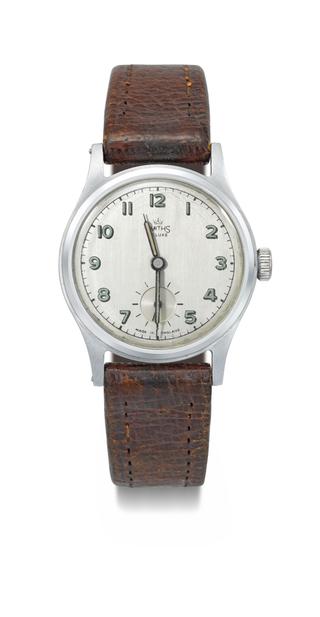




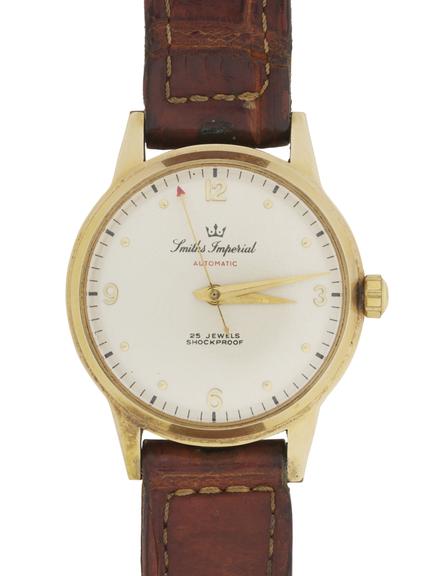

Prototype self-winding wristwatch by Smiths Clock and Watches Ltd. England, 1959. Gold-plated case with glazed back to show mechanism and leather strap. Silvered dial signed ‘Smiths Imperial Automatic. 25 Jewels. Shockproof’. Jewelled automatic movement with lever escapement.This watch was never put into production or sold to the public but a few examples were donated to individuals. The watch belonged to Colonel Humphrey Quill, author of 'John Harrison the Man who found Longitude' and Commanding Officer of the 30 Assault Unit (30AU) at the end of World War II. It passed to the museum of the Worshipful Company of Clockmakers upon Quill's death in 1987. Clockmakers' Museum No. 691.
Details
- Category:
- Clockmakers
- Collection:
- The Worshipful Company of Clockmakers
- Object Number:
- L2015-3564
- type:
- wristwatch and lever movement
- credit:
- Lent by the Worshipful Company of Clockmakers

